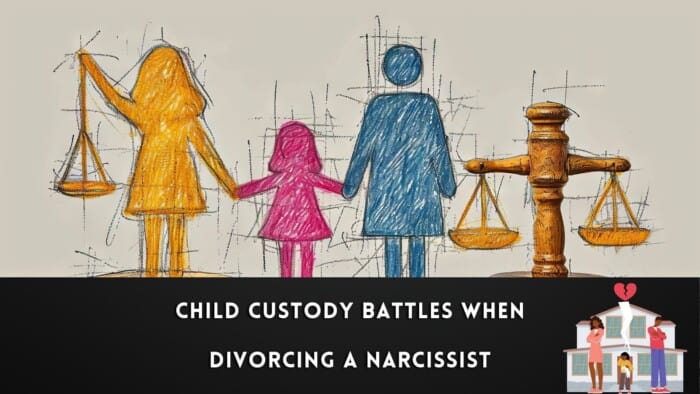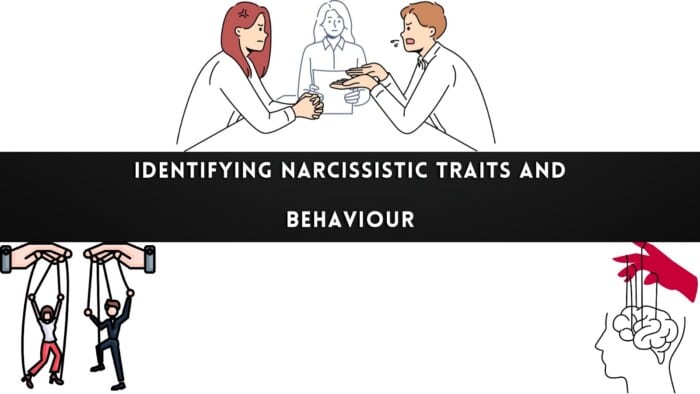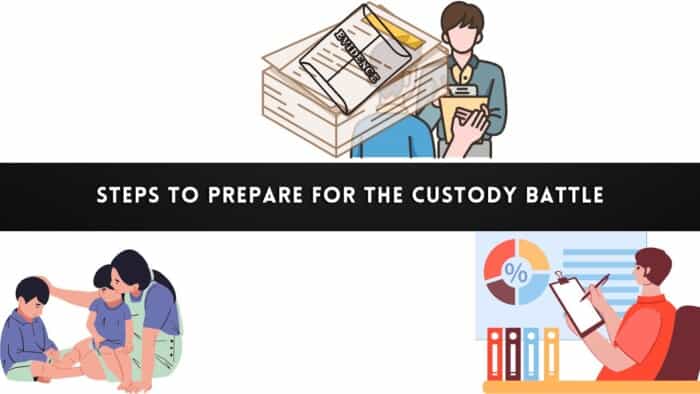
Divorcing a narcissist is a mentally and emotionally challenging process, especially when there are children involved. Narcissists are controlling, love to fight and take control over their children and ex-partners, which makes the entire process even more complicated.
Such a situation must be dealt with careful planning with solid evidence, strong legal support, and prioritizing the child’s mental health.
In this article, we’ll guide you through the steps to navigate this process to build a strong case to ensure the best possible outcome for you and your child.
Identifying Narcissistic Traits and Behaviour

Narcissist individuals portray a different range of behaviors, which include—
1. Psychological Manipulation
Narcissist parents manipulate and gaslight the other parent in order to invalidate their feelings and opinions. They might spread rumors to portray themselves as the better parent. They also manipulate the child to blame the other parent.
2. Lack of Empathy
Narcissists do not empathize with the child’s emotions or needs, instead, they prioritize themselves without showing any concern for the child. They see the battle more as a competition where winning is the only goal.
3. Uncooperative Behavior
Refusal to cooperate is also a type of behavior you need to monitor. They refuse to compromise and comply with court orders, which creates unnecessary conflict and drama. Such a non-cooperative mindset extends court wars, adding more stress to the mental well-being of the child.
4. Dominant and Controlling Behavior
Narcissists adore controlling individuals. They employ the authority of intimidation on their former partner in order to control things. Others employ the authority of wealth, dragging out the proceedings to bankrupt their former partner. Most of the time it’s not about the child’s well-being, but rather controlling their ex-partner.
Steps to Prepare for the Custody Battle

In preparation for the lengthy proceedings, you must take the correct steps to build a solid ground for the custody battle. These are,
1. Document Evidence
Gather and preserve all the communication between you and the ex-partner, like photographs, videos, text messages, call records, emails, or any other evidence showing their narcissistic personality.
2. Securing Potential Witnesses
Your family, relatives, and close friends might give good witness statements of your parenting skills. However selecting witnesses who are not necessarily in favor of or against you and the child might give a better insight from their viewpoints. They can be neighbors, counselors, doctors, and teachers.
3. Finding Emotional Support
Counseling and therapy assistance from divorce therapists will assist in dealing with the trauma from a divorce. Getting professional advice on your emotions and feelings will assist in possibly receiving the advice you need to cope with the situation and reduce pressure.
4. Keeping Financial Records
Maintain records of your spending to indicate your financial ability. Retain all the evidence of expenses like bank slips, statements, bills, and insurance from your ex-partner so they won’t be able to impersonate any economic claim against you.
Winning the Battle in Court: Legal Tactics Against A Narcissist

The narcissists will do possibly everything in their power to emerge successful in the battle. In that context, you are required to hire professional assistance and implement legal tactics on your end.
Below mentioned are the legal tactics that can be implemented to be successful in the battle while prioritizing the child’s best interest—
1. Hire a Professional Attorney
If you are preparing for a divorce involving a narcissist, you should hire the best lawyer familiar with divorcing a narcissist case. This may help you navigate the process while safeguarding your legal rights.
2. Adhere to Legal Procedures
Obey all types of court rules and regulations to minimize any chance of mishaps. The other party, at times, might attempt to twist the rule in their favor, so it is advisable to obey the right procedure to safeguard yourself in this case.
3. Keep Your Sanity
Do your best to remain calm and composed during court. Avoid showing any kind of nervousness or restlessness, as the narcissist will attempt to use and abuse it for their advantage. Never express any kind of reaction or emotion towards the narcissistic parent.
4. Know Your Legal Rights and Obligations
Knowing the law and regulations of the procedure and your legal rights are important in making sound decisions and safeguarding yourself against exploitation by the other party.
Parenting with the Narcissist After the Divorce
Once the divorce is settled, co-parenting with the narcissist becomes extremely challenging due to their uncooperative behavior. Even if the custody arrangement is determined, they still try to seek control.
In such cases, setting boundaries and limitations is necessary. Limit any type of direct contact with the other parent and set some rules regarding visiting time, communicating, and decision-making for your child. Furthermore, strictly follow the custody agreements and policies.
Focus on the child’s best interest and mental well-being and avoid engaging in any kind of argument in front of them, as it can affect their mindset negatively. Prioritize both your and your child’s mental health. Encourage your child to be more open about their opinions and feelings, and teach them critical thinking skills to help them identify any toxic behavior.
Protecting the Custody Agreement: Preventing Future Issues
To avoid any future interruptions, ensure that the agreement is legally correct and strong and includes clear agreement terms and policies about co-parenting after the divorce.
Keep a record of every visitation and communication, as well as broken rules and agreements. Such documents can be useful if there’s any necessity to take legal action in the future.
Furthermore, if the narcissistic parent doesn’t comply with the rules, report them to the attorney if necessary and seek legal modification of the agreement to protect your child’s best interest.
Navigating the process can be difficult and take a toll on your mental health. It’s necessary to be resilient and confident about your demands and rights. At the same time, prioritize your child over anything to ensure a secure future for them away from negativity.

